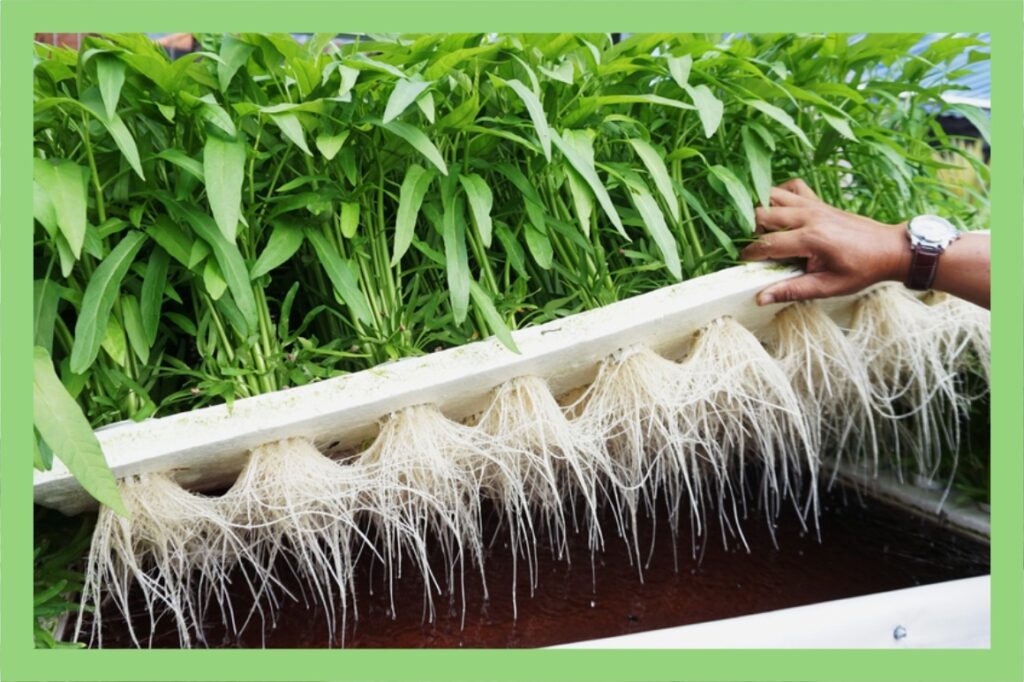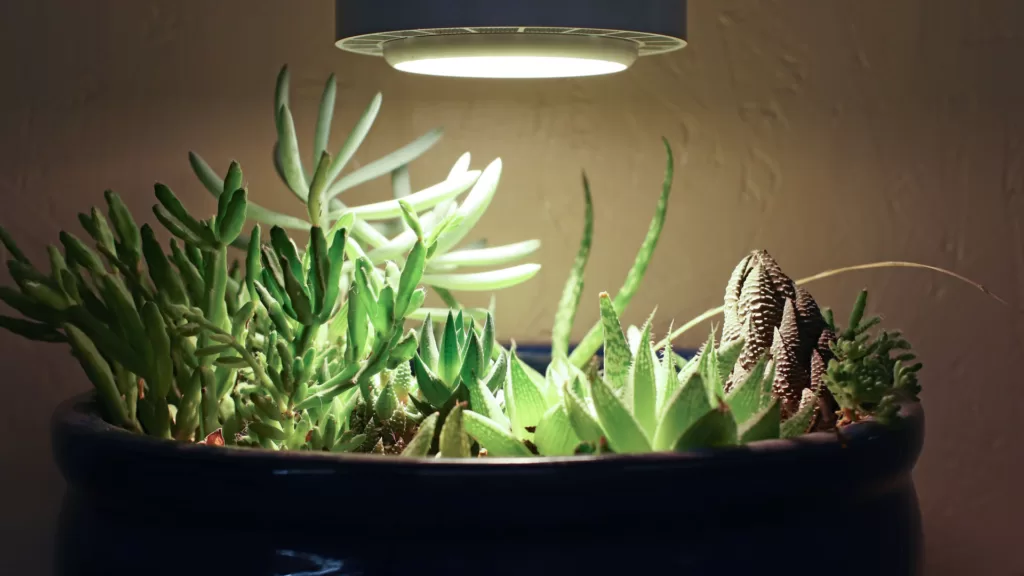Growing your own vegetables is a great way to save money, eat healthier, and get some exercise outdoors. But if you’re a beginner, it can be hard to know which vegetables are the easiest to grow all year round. In this article, we’ll take a look at some of the best vegetables to grow in any season, so you can start your own vegetable garden in no time.
I. Introduction
Vegetable gardening is a great way to get in touch with nature and provide your family with fresh, healthy produce. But if you’re just starting out, it can be hard to know which vegetables are the easiest to grow all year round. Fortunately, there are a few vegetables that are easy to grow and can be harvested in any season. In this article, we’ll take a look at some of the best vegetables to grow all year round.
Table of Contents
II. The Best Vegetables for All Seasons
Tomatoes are one of the best vegetables to grow all year round. They are easy to grow, require minimal maintenance, and can be harvested in any season. Other vegetables that are easy to grow all year round include peppers, cucumbers, squash, and beans. These vegetables are all easy to grow and can be harvested in any season.
A. Overview of Growing Vegetables All Year Round
Growing vegetables all year round is a great way to ensure a steady supply of fresh produce. It’s important to choose vegetables that are easy to grow and can be harvested in any season. Tomatoes, peppers, cucumbers, squash, and beans are all great options for growing all year round.
B. Tips for Growing Vegetables All Year Round
When growing vegetables all year round, it’s important to choose the right varieties for your climate. Some vegetables may need to be grown in a greenhouse or indoors in order to be harvested in any season. Additionally, it’s important to provide the right amount of water, sunlight, and nutrients to ensure a successful harvest.
II. Benefits of Growing Vegetables All Year Round
Growing your own vegetables all year round has many benefits. Not only will you save money on groceries, but you’ll also be able to enjoy fresh, healthy produce all year round. Additionally, growing your own vegetables is a great way to get some exercise and connect with nature.
Overall, growing your own vegetables all year round is a great way to save money, eat healthier, and get some exercise outdoors. With the right vegetables and a bit of care, you can start your own vegetable garden in no time.
A. Improved Nutrition
Growing your own vegetables all year round can help improve your nutrition. Fresh vegetables are packed with vitamins and minerals that are essential for good health. Additionally, homegrown vegetables are often fresher and tastier than store-bought produce.
B. Reduced Waste
Growing your own vegetables all year round can help reduce waste. By growing your own vegetables, you can reduce your reliance on store-bought produce, which often comes in single-use plastic packaging. Additionally, you can compost your vegetable scraps to reduce waste even further.
Overall, growing your own vegetables all year round can help improve your nutrition, reduce waste, and save you money. With the right vegetables and a bit of care, you can start your own vegetable garden in no time.
B. Cost Savings
Growing your own vegetables all year round can help you save money. Not only will you save money on groceries, but you’ll also save money on water and energy costs. Additionally, you can save money by composting your vegetable scraps and using them as fertilizer.
C. Connect with Nature
Growing your own vegetables all year round is a great way to connect with nature. Not only will you get some exercise outdoors, but you’ll also get to appreciate the beauty of nature. Additionally, you can use your homegrown vegetables to attract beneficial insects and birds to your garden.
Overall, growing your own vegetables all year round can help you save money, eat healthier, and connect with nature. With the right vegetables and a bit of care, you can start your own vegetable garden in no time.
D. Environmental Benefits
Growing your own vegetables all year round can also have environmental benefits. By growing your own vegetables, you can reduce your reliance on store-bought produce, which often requires long-distance transportation. Additionally, you can use sustainable gardening practices, such as companion planting and crop rotation, to help reduce your environmental impact.
Overall, growing your own vegetables all year round can help you save money, eat healthier, and reduce your environmental impact. With the right vegetables and a bit of care, you can start your own vegetable garden in no time.
What are some easy vegetables to grow all year round?
There are many vegetables that are easy to grow all year round, both indoors and outdoors. Here are a few examples:
- Lettuce: Lettuce is a cool-season crop that can be grown indoors or in a greenhouse. It prefers a temperature range of 40-65°F (4-18°C) and a moist, well-drained soil.
- Spinach: Spinach is another cool-season crop that can be grown indoors or in a greenhouse. It prefers a temperature range of 40-65°F (4-18°C) and a moist, well-drained soil.
- Arugula: Arugula is a quick-growing, cool-season crop that can be grown indoors or in a greenhouse. It prefers a temperature range of 45-75°F (7-24°C) and a moist, well-drained soil.
- Herbs: Many herbs such as basil, thyme, rosemary, cilantro, parsley and chives are easy to grow and can be grown indoors or in a greenhouse all year round. They usually require adequate lighting, consistent moisture and some humidity.
- Radishes: Radishes are a quick-growing crop that can be grown indoors or in a greenhouse. They prefer a temperature range of 60-75°F (16-24°C) and well-drained soil.
- Carrots: Carrots can be grown indoors using containers or in a greenhouse as well. They prefer temperatures between 45-75°F (7-24°C) and well-drained soil.
These are just a few examples of easy vegetables that can be grown all year round. With the proper equipment and conditions, many other vegetables can also be grown indoors or in a greenhouse.
III. Types of Vegetables to Grow All Year Round
When it comes to growing vegetables all year round, there are a few types of vegetables that are particularly easy to grow. These include leafy greens, such as lettuce and spinach, root vegetables, such as carrots and potatoes, and cruciferous vegetables, such as broccoli and cauliflower.
Additionally, you can also grow herbs all year round, such as basil, oregano, and thyme. Herbs are easy to grow and can add flavor to your meals.
Overall, there are a variety of vegetables and herbs that you can grow all year round. With the right vegetables and a bit of care, you can start your own vegetable garden in no time.
A. Leafy Greens
Leafy greens, such as lettuce and spinach, are some of the easiest vegetables to grow all year round. These vegetables are fast-growing and can be harvested within a few weeks. Additionally, they are packed with vitamins and minerals, making them a great addition to any meal.
B. Root Vegetables
Root vegetables, such as carrots and potatoes, are also relatively easy to grow all year round. These vegetables take a bit longer to grow than leafy greens, but they are still relatively easy to care for. Additionally, root vegetables are a great source of fiber and other essential nutrients.
C. Cruciferous Vegetables
Cruciferous vegetables, such as broccoli and cauliflower, are also easy to grow all year round. These vegetables take a bit longer to grow than leafy greens and root vegetables, but they are still relatively easy to care for. Additionally, cruciferous vegetables are a great source of vitamins and minerals.
Overall, there are a variety of vegetables that you can grow all year round. With the right vegetables and a bit of care, you can start your own vegetable garden in no time.
D. Root Vegetables
Root vegetables, such as carrots and potatoes, are also relatively easy to grow all year round. These vegetables take a bit longer to grow than leafy greens, but they are still relatively easy to care for. Additionally, root vegetables are a great source of fiber and other essential nutrients.
E. Cruciferous Vegetables
Cruciferous vegetables, such as broccoli and cauliflower, are also easy to grow all year round. These vegetables take a bit longer to grow than leafy greens and root vegetables, but they are still relatively easy to care for. Additionally, cruciferous vegetables are a great source of vitamins and minerals.
D. Herbs
Herbs are also easy to grow all year round. Herbs such as basil, oregano, and thyme are easy to grow and can add flavor to your meals. Additionally, herbs are a great source of antioxidants and other essential nutrients.
Overall, there are a variety of vegetables and herbs that you can grow all year round. With the right vegetables and a bit of care, you can start your own vegetable garden in no time.
Tips for Growing Vegetables All Year Round
A. Choose the Right Location
B. Use Quality Soil
C. Water Regularly
A. Summary of Benefits of Growing Vegetables All Year Round
Growing vegetables all year round at home is possible with the use of indoor gardening techniques and controlled environments such as greenhouses or grow tents.
Indoor gardening allows you to control the light, temperature, humidity, and other environmental factors that plants need to thrive. This can be done using grow lights, heating and cooling systems, and other equipment.
Greenhouses and grow tents can also be used to extend the growing season for outdoor plants. These structures can protect plants from frost, wind, and other environmental factors that can damage or kill them.
When choosing plants for indoor or greenhouse gardening, it’s important to select varieties that are well-suited to the specific growing conditions. Some plants thrive in low light, while others need high levels of sunlight. Similarly, some plants require high humidity, while others prefer dry conditions.
To have a sustainable year-round growing, you also have to plan your crops to alternate between harvest, planting and caring for others. This way you can make sure your garden is always productive.
Keep in mind that growing vegetables all year round at home can require a significant investment in equipment and ongoing maintenance. If you’re new to indoor gardening, it’s a good idea to start small and learn as you go.







